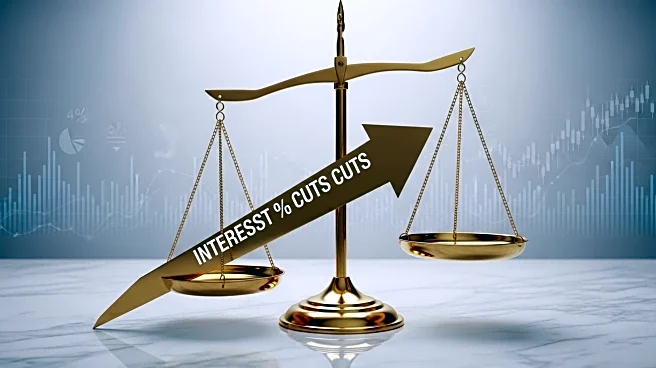What is the story about?
What's Happening?
President Trump's appointee to the Federal Reserve's Board of Governors, Stephen Miran, has called for the central bank's key interest rate to be much lower than its current 4.1% level. Miran, who is also a top economic advisor to Trump, suggested that the rate should be closer to 2.5%, citing sharp declines in immigration, rising tariff revenue, and an aging population as factors. His position diverges significantly from his colleagues on the Fed's rate-setting committee. Miran's appointment has been controversial due to his dual role as head of the White House Council of Economic Advisers, raising concerns about the Fed's independence from day-to-day politics.
Why It's Important?
Miran's call for steeper rate cuts highlights a significant divergence in views within the Federal Reserve. His position suggests a more aggressive approach to monetary policy, which could have implications for inflation and employment. The controversy surrounding his appointment underscores concerns about the Fed's independence, as Miran's dual role raises questions about potential political influence on monetary policy. If Miran's views gain traction, it could lead to a shift in the Fed's approach, impacting economic stability and the central bank's credibility.
What's Next?
Miran's term on the Fed's board expires in January, and he has indicated plans to return to the White House. However, he could remain on the board until a successor is appointed. The Trump administration's efforts to fire Fed Governor Lisa Cook, which Miran supports, are currently being challenged in court. The outcome of this legal battle could influence the composition of the Fed's board and its future policy direction. The Fed's rate-setting committee will continue to deliberate on interest rate policy, with Miran's views potentially influencing future decisions.















